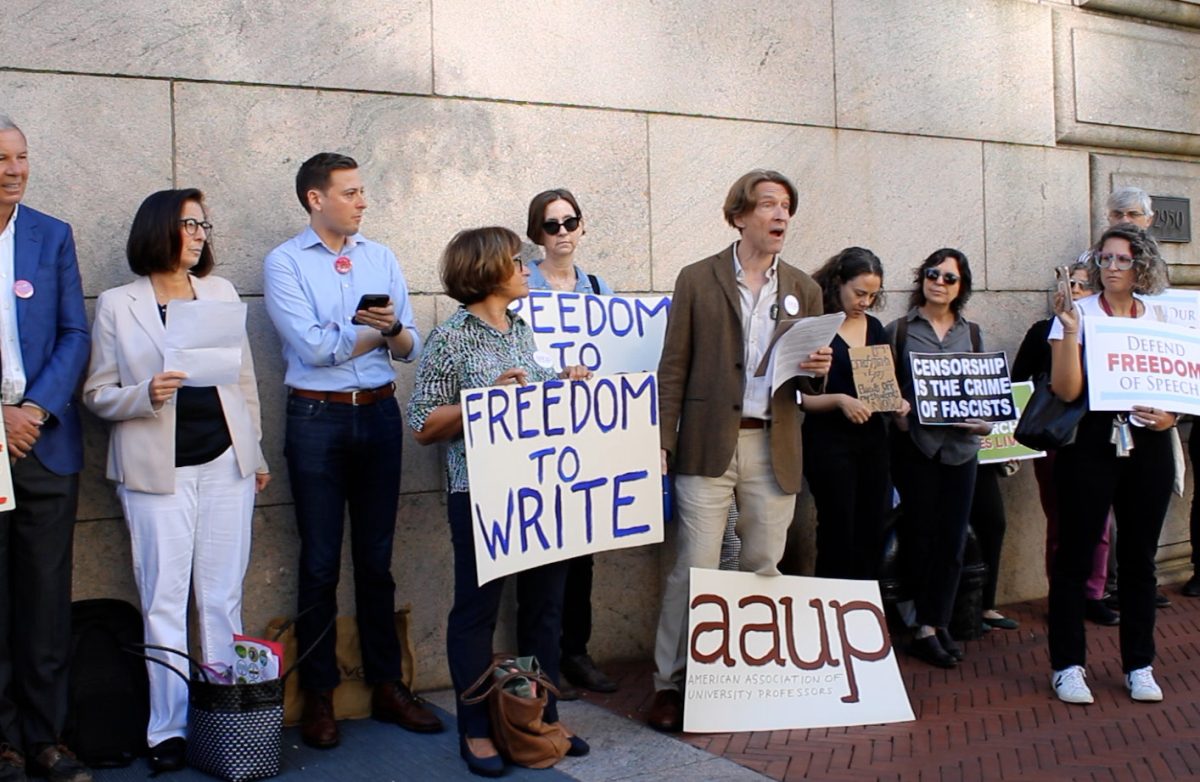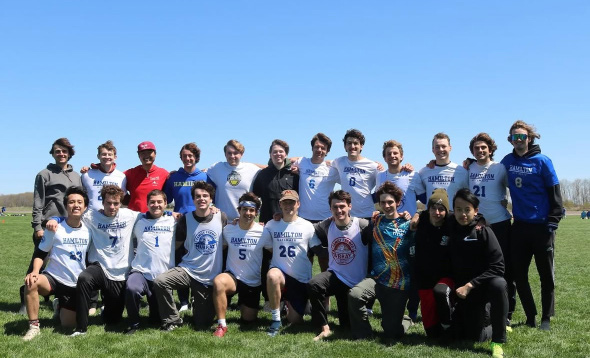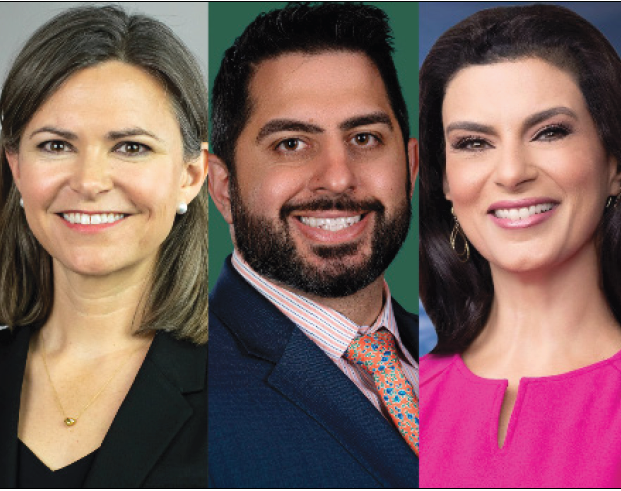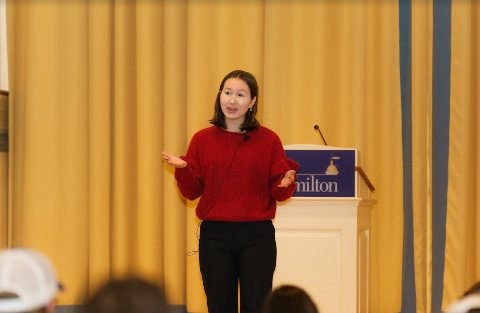
On Saturday, March 2, students filed into the Chapel for the final round of the Public Speaking Competition. Originally, this competition coincided with commencement and only seniors were allowed to compete. Now, it is a seperate event with two of the three prizes being open to all students.
The Oral Communication Center hosts this competition to give Hamilton students an opportunity to demonstrate their public speaking abilities and exhibit their creativity. Each nominee gives around a seven minute speech about a different category varying by prize. There are three awards for students who compete: the Clark Prize, the McKinney Prize and the Wright Prize. The senior winner of the Clark and Mckinney prize takes home a cash prize of $2,500. All other class year winners take home $1,250. The winner of the Wright Prize receives $9,500.
Amy Gaffney, Director of the OCC, commented that “the competition is an opportunity to showcase what Hamilton students can do. Students show their passion for a variety of topics and always leave the judges wowed.”
The Clark Prize is the oldest prize. Nominees are asked to give a persuasive speech on a designated topic. This year’s nominees for the Clarke Prize, seniors Deniz Tek ’24 and Lily Harai ’24, responded to the prompt from Shakespeare’s Juliet, “What’s in a Name?” In his speech on “The Self-Subjectivity of Names,” Tek explained people’s various perceptions of his name, and explained its Turkish origin. Harai’s speech “Hello my name is…” explores the choices that define names.
Next, students competed for the McKinney Prize. The McKinney prize allows for students to choose their own prompts, and was established in 1885 by Hamilton College trustee Charles McKinney. Senior Emma Reilly ’24 gave her speech, “Hannah Montana Said It First: Nobody’s Perfect,” first for this competition. Reilly criticized the idea of perfectionism as a virtue, and argued that “perfectionism is not about having high standards but impossible standards.” Senior John Hern ’24 followed Reilly to give another compelling speech on nuclear energy. In his speech “A Power Plant Divided,” Hern argued that nuclear power can be a safer and more efficient environmental solution which can complement efforts to move toward renewable energy.
Three sophomores and two first-years followed the seniors to compete for the McKinney Prize. Sophomore Mili Reynoso ’26 argued in her speech “How I Learned to Listen” that people are too focused on specific word choices and ignore the true intentions behind peoples’ words. Sophomore Amaris Martins spoke about the way that our legal system mistreats Black women in her speech “The Injustice We Call Justice.”
Martins argued that “justice has become a commodity, available only to those who are privileged enough to attain it.” The final sophomore finalist, Grace Wilde ’26, gave her speech on the “Consequences of Caring: A Look Into Our Mandated Reporting System.” Wilde spoke about the way in which our mandated reporting system has led to overreporting child abuse, which has disproportionately affected children with behavioral disabilities and single parents. She argues that there should be more training on signs of child abuse, replacing a mandated reporting system, to create a more safe and fair system.
Following a fifteen minute intermission with pastries and refreshments, the final five competitors gave their speeches. Freshman Nana Hayrumyan ’27’s “Lessons in Gratitude from a Republic That Was Lost Overnight” argues that “gratitude is a source of generosity,” attributing a lot of her values to her home country of Artsakh. First-year Teddy Gercken ’27 followed, giving his speech “On Your Mark: America Prepares to Win The Second Space Race.” Gercken argued that American ingenuity, with the collaboration of private companies and the government, will drive America to win the space race.
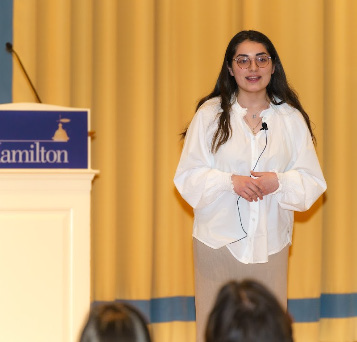
The final prize, the Wright Prize, was established upon the retirement of Professor Moore E. Wright who taught at Hamilton for over 30 years. In order to compete for this prize, students are required to have completed Hamilton’s public speaking course. This prize is distinct because these speeches are informative rather than persuasive, and following their speeches nominees are required to answer two questions from the judges.
Eric Moss ’24 gave the first speech for the Wright Prize. His speech “Nature = Nurture: the Benefits of the Outdoors” explains how spending time outside can greatly improve people’s mental health, drawing upon his own experience as an Adirondack Adventure trip leader.
Ethan Kalishman ’24 gave his speech, “A Divided Delman Turns Divine: An Explication of Saint Louis’ Harmful, Yet Improvable Urban Planning,” about the harmful urban planning which has constructed his hometown of Saint Louis. Amaris Martins gave her second speech “Just Don’t Sweat It: The Philosophy of Stoicism” about how stoicism helps people remain grounded and navigate difficult issues in all realms of their life.
After the judges gathered for a brief period, the audience reconvened to hear the results of the competition. Harai received the Clark Prize for her speech. Reilly took the stage to receive the McKinney Prize for seniors. As it was such a close call, the judges gave two McKinney prizes to sophomores Amaris Martins and Grace Wilde, and Namu Hayrumyan received the freshman McKinney prize. Eric Moss received the Wright Prize. Every competitor received a monetary prize for their participation in the competition. Winners of the competition will be recognized at Class and Charter Day.




